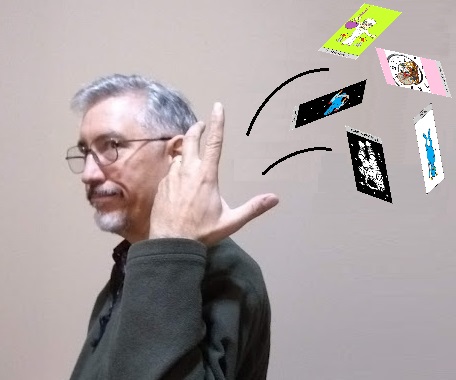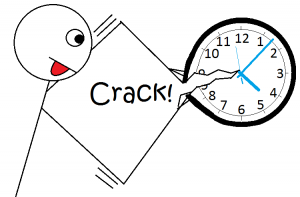Another year, another set of (mostly) failed predictions. You’d think I’d give this up! At the end of 2020, I used special tarot cards to make predictions about science fiction books to appear in 2021. Let’s see how those prophecies panned out.
- Prediction: Disease stories. Inspired by the COVID-19 virus, there will be stories of even deadlier diseases, perhaps intelligent diseases. I see stories of pandemics, extreme isolation, and how characters deal with mass death.
- Assessment: I didn’t see a lot of such books, but The End of Men by Christina Sweeney-Baird is about a virus that kills only men.
- Prediction: Rebirth. I foresee stories of characters getting back to normal after pandemics, stories about the rebirth of society.
- Assessment: Perhaps my prediction for this was a year early. The Past is Red by Catherynne M. Valente is about rebirth of civilization after climate change and pollution, not disease.
- Prediction: Private Space Exploration. Inspired by Space-X, stories of space travel will involve companies, not governments.
- Assessment: I saw no real evidence of this.
- Prediction: Humor. There will be a surge in funny scifi, mainly because we can all use it right now.
- Assessment: I saw no real evidence of this.
- Prediction: Artificial Intelligence. Writers in 2021 will continue to explore this topic as they have for decades, but with greater urgency as computer scientists get closer and closer to developing Artificial General Intelligence, and perhaps Artificial Super Intelligence.
- Assessment: Got this one right! Check out A Psalm for the Wild-Built by Becky Chambers, and Fugitive Telemetry by Martha Wells.
- Prediction: Anti-Capitalism. I predict there will be stories pointing out, in fictional form, the deficiencies of capitalism. Anti-capitalist themes may only form the backdrop of the story, but they will be there.
- Assessment: I give myself partial credit here. The Past is Red by Catherynne M. Valente concerns the aftermath of a polluted, flooded future Earth after capitalism has run amok.
- Prediction: China. In 2021, I see an uptick in scifi books involving China in some way. Some will be written by Chinese authors, and some stories will be set in China.
- Assessment: Again, I think I earned partial credit. Sinopticon, edited by Xueting Christine Ni was an anthology of Chinese scifi short stories. The anthology was published in 2021 and contained stories dating from 1993-2021.
- Prediction: Fewer Aliens. Alien tales are out in 2021. Of the few that will be published, they will involve communication only, not visitations, let alone abductions or invasions.
- Assessment: Sheesh. I couldn’t have been more wrong. If anything, scifi was awash with aliens in 2021. All these novels contained them: Shards of Earth by Adrian Tchaikovsky, The Last Watch by J.S. Dewes, The Saints of Salvation by Peter F. Hamilton, To Sleep in a Sea of Stars by Christopher Paolini, A Desolation Called Peace by Arkady Martine, and Jack Four by Neal Asher.
- Prediction: Urban Scifi. Paralleling the urban fantasy subgenre, we’ll see a lot of scifi books in 2021 that start out in a modern-day city setting, and go from there.
- Assessment: For the most part, I got this wrong. Most scifi in 2021 was set in the future. One exception was The Kaiju Preservation Society by John Scalzi which begins in modern-day New York City.
Personal Predictions
I also included a set of prophesies about my own writing and editing. I managed to get them all wrong.
- Prediction: The Seastead Chronicles, my collection of short stories about the future history of seasteading, will be published in 2021.
- Assessment: Not 2021, but next year, I hope.
- Prediction: The North American Jules Verne Society will publish its first anthology of short stories, (working title: Extraordinary Visions: Stories Inspired by Jules Verne) all inspired by Jules Verne, in 2021, and I’ll be on the editorial team.
- Assessment: Not 2021, but 2022 for sure.
- Prediction: Pole to Pole Publishing will put out an anthology of reprinted military science fiction short stories in 2021, titled Re-Enlist. I’ll serve as co-editor of this one.
- Assessment: Regrettably, Pole to Pole Publishing had to abandon this one. Won’t be happening.
Though I’ve failed to make accurate predictions using tarot cards, tea leaves, and a crystal ball in the past three years, don’t think I’m giving up. I’ve been working all year to perfect astrological prediction techniques. Watch this space for next week’s blog, where I reveal the truth about scifi literature in 2022.
Let’s just forget about my past failures, shall we? Starting now, you can believe all future predictions made by—
Poseidon’s Scribe


 Sure, you say, but those great authors don’t do anything but write. Writing is their day job. That may be true for many of the great authors, but few of them started great. Most had day jobs until their books sold well.
Sure, you say, but those great authors don’t do anything but write. Writing is their day job. That may be true for many of the great authors, but few of them started great. Most had day jobs until their books sold well.